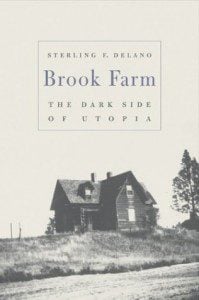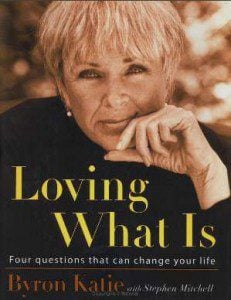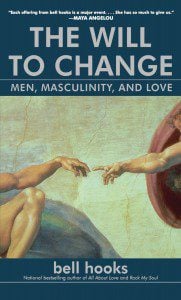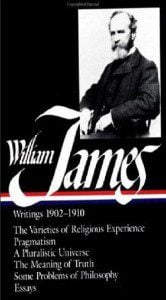8 Then I heard the voice of God saying, “Whom shall I send, and who will go for us?” And I said, “Here am I; send me!” 9 And God said, “Go and say to this people: “Keep listening, but do not comprehend; keep looking, but do not understand.’ 10 Make the mind of this people dull, and stop their ears, and shut their eyes, so that they may not look with their eyes, and listen with their ears, and comprehend with their minds, and turn and be healed.” 11 Then I said, “How long, O Lord?” And God said: “Until cities lie waste without inhabitant, and houses without people, and the land is utterly desolate; 12 until the Lord sends everyone far away, and vast is the emptiness in the midst of the land. 13 Even if a tenth part remain in it, it will be burned again, like a terebinth or an oak whose stump remains standing when it is felled.” The holy seed is its stump.
Isaiah 6:8-13
When I was a sophomore in college I took a course on the Hebrew Prophets. The final requirement for this class was a long research paper on a single passage of scripture. I was assigned Isaiah 6:1-13, which begins with the call and response that marked the beginning of Isaiah’s vocation as a prophet: “8 Then I heard the voice of God saying, ‘Whom shall I send, and who will go for us?’ And I said, ‘Here am I; send me!’”
I had heard plenty of sermons on short passages of scripture, but I was unsure how to approach an even longer paper only thirteen verses. My fears were put into perspective when I found an entire 200 page book someone had written on only two of my thirteen assigned verses:
9 And God said, “Go and say to this people: “Keep listening, but do not comprehend; keep looking, but do not understand.’ 10 Make the mind of this people dull, and stop their ears, and shut their eyes, so that they may not look with their eyes, and listen with their ears, and comprehend with their minds, and turn and be healed.”
This passage, which is quoted a few other places in the Bible, is similar to some of those passages we’ve seen in our recent study of Genesis. There are places in the Bible where God is portrayed as capricious at best and cruel at worst. Why would God want the people to be blind, deaf, and uncomprehending? Why wouldn’t God want the people to turn and be healed?
As this passage concludes, the language grows even more dire:
11 Then I said, “How long, O Lord?” And he said: “Until cities lie waste without inhabitant, and houses without people, and the land is utterly desolate; 12 until the Lord sends everyone far away, and vast is the emptiness in the midst of the land. 13 Even if a tenth part remain in it, it will be burned again, like a terebinth or an oak whose stump remains standing when it is felled.”
Finally in the last sentence, there is a glimmer of hope: “The holy seed is its stump.”
In some ways this passage isn’t so different from the mythological story of Noah: much of creation is destroyed except for one small part — in Noah’s case, his family alone remains along with a menagerie animals. Another troubling parallel is when God is said to have hardened Pharaoh’s heart in the Exodus account (Exodus 14:8 and parallels). How can Pharaoh be held responsible for refusing to let the Hebrew people go when God is responsible for hardening Pharaoh’s heart?
I have raised these questions because it is important not to always take scripture on a literal level. One way I have come to understand passages such as these, at least in part, is that they are examples of the early Hebrew people working our their theology. Through these stories, they are attempting to articulate who God is, how God works in the world, and how God relates to humanity. But we don’t have to take these early attempts as the final authority for today. Our invitation is to embrace our capacity to work out our theology for ourselves in light of both tradition and our personal experience.
~
Perhaps because I spent so much time researching and writing about Isaiah 6 that semester in college, I have continued to be interested in a number of the themes of this passage, including the biblical theme of remnant that is gestured toward in that concluding sentence: “The holy seed is its stump.” A concordance search turns up 75 verses in the Bible that include the word “remnant,” and this total does not include the many more places where the word remnant is not explicitly named, but where the theme of remnant is nevertheless present.
Since we’ve seen an example of an implicit remnant passage with Isaiah 6, the following reading from Micah 4 is an example of an explicit remnant passage. The passage speaks of a hopeful future when all people will: “beat their swords into plowshares, and their spears into pruning hooks; nation shall not lift up sword against nation, neither shall they learn war any more; 4 but they shall all sit under their own vines and under their own fig trees, and no one shall make them afraid….” Then, God said, according to Micah, “6 In that day…I will assemble the lame and gather those who have been driven away, and those whom I have afflicted. 7 The lame I will make the remnant, and those who were cast off, a strong nation….” These worlds were the sort of hopeful oracles that some of the people Israel found comforting during dark days, which included being ruled by foreign nations and being cast into exile.
On one hand, these hopeful words must have seemed to some (or to many) of the people as outrageously unrealistic. A remnant is the small part, the portion that is left over. A remnant is all that was left of the Hebrew people after Egypt, after Assyria, after Babylon, after Rome, after Greece, after the Holocaust. On the other hand, a remnant of the Jewish people has nevertheless survived and for the most part thrived despite these threats.
Consider the many other examples of this remnant dynamic in the biblical narrative. Abram and Sarai were two simple, regular people, but, as we saw last week, God promised to use these two, small lives. God promised: “I will make of you a great nation and I will bless you and make your name great.” They were asked to leave their homes and from these two people, this remnant of their homeland and families, “all the families of the worlds shall be blessed.” Significant change through small things.
Then, in unexpected twist of fate, it was Isaac and Rebekah’s younger son Jacob, not the oldest son Esau, who inherited the families’ birthright. Esau was the hunter and farmer, but the quieter Isaac received the family’s blessing…all in exchange for a bowl of soup. Significant change from small things.
Then there’s Jacob and Rachel’s son Joseph. Joseph, the younger brother is thrown into a pit and sold into slavery in the wake of jealousy regarding the gift of an “Amazing Technicolor Dreamcoat.” All seems lost, but then through a seemingly impossible series of synchronicities, Joseph becomes advisor to Pharaoh and ruler over all Egypt. This small boy who was betrayed ultimately saves his family from starvation during a long famine. Significant change from small things.
In Exodus we read that God is most powerfully transformative, not through the Egyptian Pharaoh, but in the liberation of the Hebrew slaves. God is particularly present not in the palace, but with the workers in the fields.
And in the Gospels we read that God is with us most palpably not in a resort hotel, but in a baby born to a single, unwed mother in a hovel. And many people on Earth have found God’s love most profoundly present not in politicians or royalty, but in a marginalized, homeless Jewish peasant. This pattern is good news. The hope seen throughout scripture is that God works through remnants in surprising, unexpected ways. Significant change through small things.
Micah faced threats of a war with Assyria (modern day Iraq), but he nevertheless called the people to a hopeful future in which all people would “beat their swords into plowshares, and their spears into pruning hooks; nation shall not lift up sword against nation, neither shall they learn war any more; but they shall all sit under their own vines and under their own fig trees, and no one shall make them afraid.” Today our world is faced with serious threats from global climate change to massive wealth inequality. And we still need to hear a call to a future with hope, peace, and justice if we are ever to reach such a day.
Let me give you just one example from a few weeks ago that is one of many signals of a potentially hopeful future. In late May, Reuters reported a story on “Germany sets new solar power record”:
Germany, one of the world’s leading industrial nations, was able to meet a third of its electricity needs on a work day, Friday, and nearly half on Saturday when factories and offices were closed. Government-mandated support for renewables has helped Germany became a world leader in renewable energy and the country gets about 20 percent of its overall annual electricity from those sources. Germany has nearly as much installed solar power generation capacity as the rest of the world combined and gets about four percent of its overall annual electricity needs from the sun alone. It aims to cut its greenhouse gas emissions by 40 percent from 1990 levels by 2020.”
Perhaps such competition from other nations will finally us in the U.S. to get serious about renewable energy.
God continues to work through small things, in unexpected ways, and in ways that we do not always perceive. We do not know what small action from any one person or group could effect a global shift for the common good. Our invitation is to continue to live and act in hope — for from small things, we, in partnership with God, can bring transformative change.
Notes
1 For a free online concordance, visit http://www.biblestudytools.com/nrs/.
2 For more on synchronicities, see Synchronicity, Coincidence, and “Jeff, Who Lives at Home,” available at http://www.patheos.com/blogs/carlgregg/2012/03/synchronicity-coincidence-and-%E2%80%9Cjeff-who-lives-at-home%E2%80%9D-jungian-spirituality-for-lent/. An excerpt: “Jung invites us to experiment in our own lives with the claim that through practices such as dream work and paying attention to synchronicities (‘meaningful coincidences’), we can catch glimpses of a web of meaning of which our conscious selves are typically unaware. Similarly, Viktor Frankl writes, ‘The only appropriate attitude to such coincidences is to not even try to explain them. I am too ignorant to explain them, and too smart to deny them.’”
3 http://www.reuters.com/article/2012/05/26/us-climate-germany-solar-idUSBRE84P0FI20120526.
The Rev. Dr. Carl Gregg is a trained spiritual director, a D.Min. graduate of San Francisco Theological Seminary, and the pastor of Broadview Church in Chesapeake Beach, Maryland. Follow him on Facebook (facebook.com/carlgregg) and Twitter (@carlgregg).
















